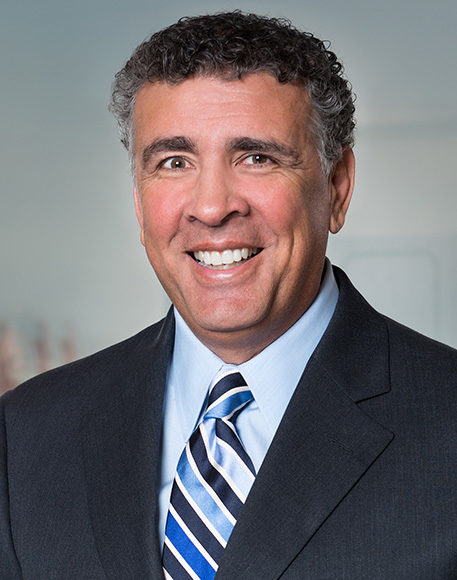How to Report Elder Abuse in California
 According to the U.S. Census Bureau and the California Department of Finance, about 6.6 million Californians qualify as “elders” — anyone over 65 years old. Analysts expect this number to continue rising dramatically through at least 2040 and perhaps even longer. The sad fact is that as the number of elderly rises, so does the number of elder abuse cases.
According to the U.S. Census Bureau and the California Department of Finance, about 6.6 million Californians qualify as “elders” — anyone over 65 years old. Analysts expect this number to continue rising dramatically through at least 2040 and perhaps even longer. The sad fact is that as the number of elderly rises, so does the number of elder abuse cases.
Make no mistake about it. If you credibly suspect abuse of an elder, you have a moral obligation to report it. Under California law, you might even have a legal obligation to do so. Reporting the abuse of an elder can not only stop the abuse of that individual, but it might even halt a systematic, institutional pattern of abuse that has harmed hundreds or even thousands of people over time.
Signs of elder abuse
Below is a very abbreviated list of some of the most common telltale signs of every form of elder abuse, including physical, emotional, sexual, financial and neglect.
- Bedsores are a convincing sign that the caregiver is failing to reposition the elder to prevent bedsores from forming.
- STDs, at least recent cases, prove that sex took place. If your loved one cannot consent (due to dementia, for example), strong evidence of sexual abuse.
- Untreated medical conditions strongly indicate neglect.
- Dirty clothes, an unwashed body, body odors, and an unkempt appearance. In extreme cases, this might even mean that the caregiver is deliberately withholding showers as a form of “discipline.”
- Abrasions around wrists and ankles suggest improper restraint.
- Overmedication can indicate that someone is administering medication as a form of restraint.
- Missing funds, especially from the bank account of someone suffering from dementia, can establish financial abuse.
- Inability to pay bills despite adequate income should at least raise suspicions of financial abuse. If the elder lives at home with a caregiver, unpaid utility bills are among the easiest unpaid bills to spot.
- Emotional instability could indicate psychological or even physical abuse.
Bruising might indicate physical abuse. - Weight loss might suggest that someone is withholding food as a form of “discipline,” or perhaps a very serious form of neglect.
- Social withdrawal can indicate emotional abuse.
Dehydration could indicate physical neglect, or it could indicate neglect of a medical condition such as dysphagia that impair fluid intake. - Sudden confusion can indicate dehydration through neglect or mismanagement of medication.
- Fearfulness, especially in the presence of a particular person, could indicate physical, emotional or sexual abuse.
Family members and caregivers should intervene as soon as they reasonably suspect elder abuse. Don’t wait for conclusive evidence, because early intervention is critical for both legal and medical reasons.
California’s mandatory reporting laws
California’s mandatory reporting laws obligates the following parties to report any reasonably suspected elder abuse:
- Caregivers or custodians, including in-home aides and staff in residential facilities
- Clergy, when not under clergy–penitent privilege
- Community care facility staff
- EMTs and paramedics
- Employees of protective service or law enforcement agencies
- Financial services providers (for financial abuse)
- Healthcare professionals
- Staff at hospitals and long-term care facilities
- Mental health professionals
- Social workers
- Teachers and child care custodians, if they are also serving elders or dependent adults
These parties enjoy immunity from civil and criminal penalties arising out of their reports, as long as they act in good faith. This protection endures even if their report turns out to be unsubstantiated. The law protects the confidentiality of the reporter, and it protects reporters from retaliation by their employers.
Failure to report carries its own penalties if you are one of the above-listed parties. In a worst–case scenario, someone failing to report elder abuse could end up losing their professional license, spending up to a year in jail, and paying thousands of dollars in fines.
Reporting process in California
California has its own distinct elder abuse reporting system. One aspect that is the same as every other state is the emergency number–911, as always. That much will summon an ambulance and the police.
Non-emergency situations
In a non-emergency situation, call the Statewide APS Hotline (24/7) at 1‑833‑401‑0832. Calling this number will automatically connect you to the county APS—Los Angeles County, for example.
Next, provide the following information:
- Name, age, and address of the victim
- The nature of the suspected abuse (e.g., physical abuse, emotional abuse, etc.)
- Name and identifying details of the suspected abusers
- Any immediate safety concerns–the abuser owns a gun, the victim is in fragile health, etc.
You don’t have to provide your name if you don’t want to.
Other state resources
The following resources might also prove useful to you at some point.
- The California Attorney General’s Elder Abuse Hotline: 888‑436‑3600. They deal with serious cases of elder abuse. They often refer cases to law enforcement, regulatory agencies, or licensing boards (e.g., the Medical Board).
- The California State Long-Term Care Ombudsman Program serves as a resident-centered advocacy service for individuals in nursing homes, assisted living, and other long-term care facilities. The Ombudsman acts as an advocate for residents’ rights.
These state resources complement the services of APS and can be vital allies in protecting elders from abuse
How an experienced elder abuse lawyer can help
An elder abuse lawyer can help you in more than one way:
- Remove your loved one from an abusive environment
- Sue the individual perpetrator or the institution for personal injury
- Force changes in the way an institution (such as a nursing home) operates, thereby protecting future residents from abuse
Get a lawyer on board quickly, because calculating the statute of limitations can be particularly difficult in abuse cases — especially if your loved one suffers from dementia.
Move with all deliberate speed to protect your loved one from elder abuse
Act now to ensure justice for your loved one. Your report could save a life—or even many lives if the abuse you report is systemic. Not just any lawyer will do, however. You’re going to need a personal injury attorney with significant elder abuse experience.
Garcia & Coman is one of the largest and most experienced elder abuse law firms in the United States. Our lawyers have handled over 3,500 cases and counting. All told, we have brought home over $3 billion in compensation in elder abuse cases. For your convenience, we maintain offices in Long Beach and Los Angeles, California as well as elsewhere in the United States. Contact us immediately to set up a free initial consultation.

Stephen M. Garcia represents victims of elder and nursing home abuse and is known as one of the leading civil litigators in the country. He is Senior Partner at Garcia & Coman, where the firm’s practice is focused on elder abuse, nursing home abuse, and wrongful death of the elderly.
Find out more about Stephen M. Garcia

